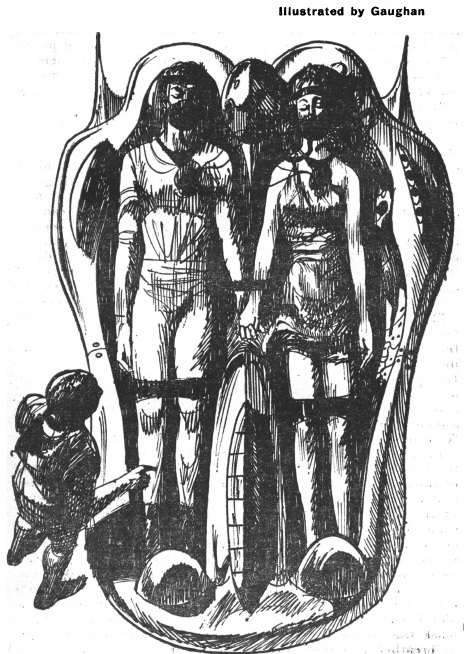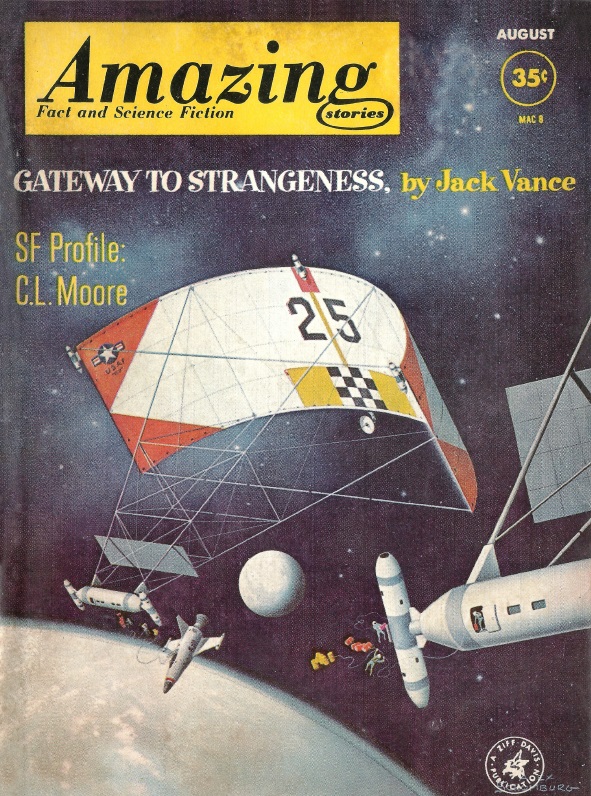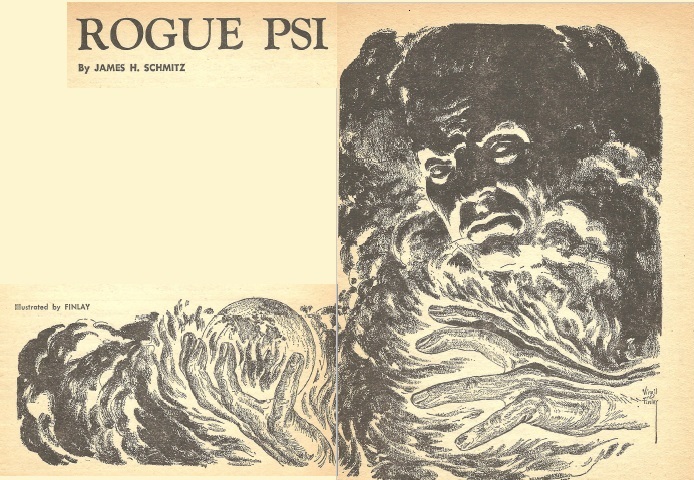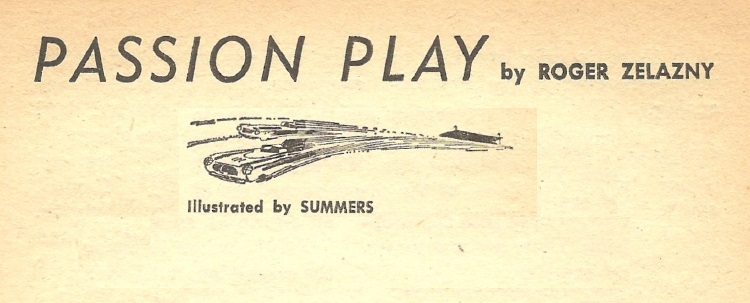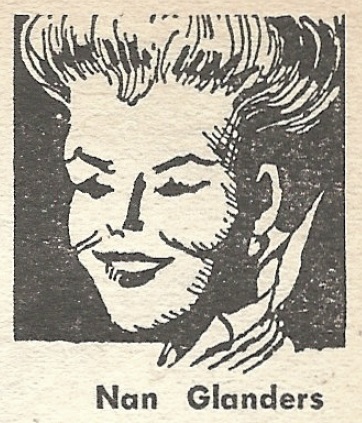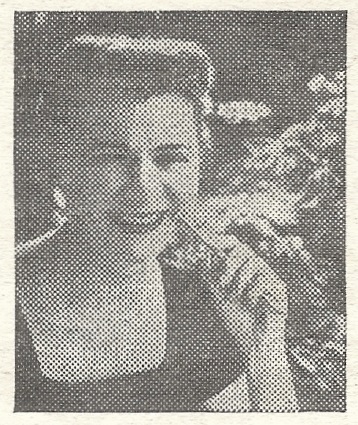
by John Boston
This September Amazing continues the magazine’s slide into mediocrity after the promise of the year’s earlier issues.
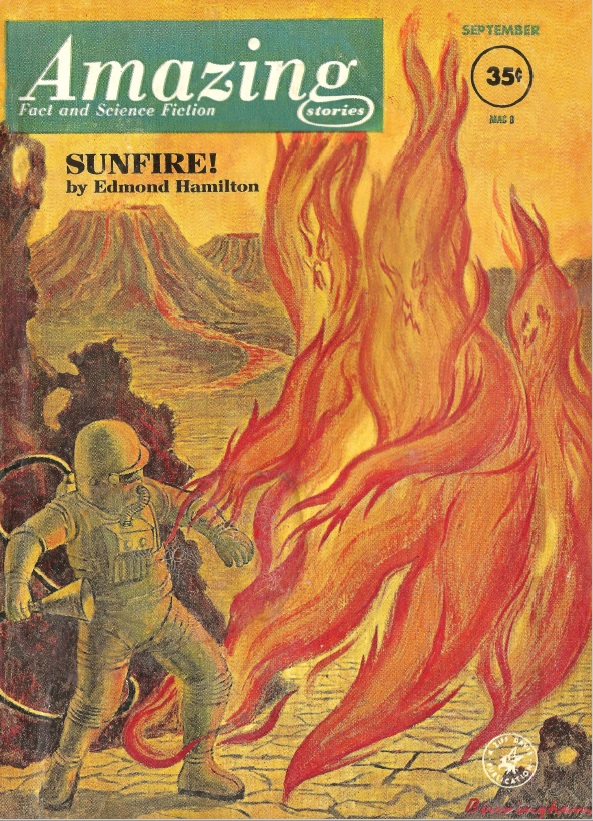
Keith Laumer’s serial A Trace of Memory concludes, and it’s quite disappointing, in part because it compares so poorly to last year’s Worlds of the Imperium, in part because it seemed to start so well. The protagonist, who is down and out after a sequence of ridiculously bad luck, is pulled out of the gutter (well, out of a police station) by a strange rich guy called Foster who seems to have lived for centuries, has an indestructible old journal to prove it, but doesn’t remember who he is or how he got here. Also, it turns out, he is being stalked by even stranger, and dangerous, globular creatures, who catch up to him as the protagonist joins him, leading to a chase across country, and ultimately across the ocean, to escape them and track his origins.
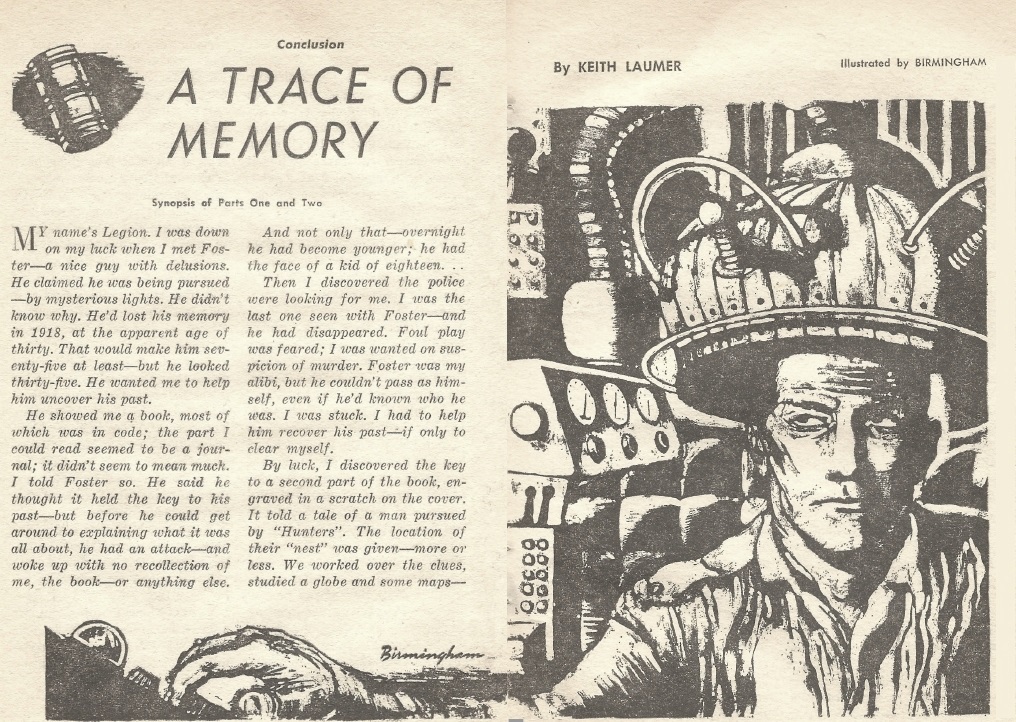
That first half was quite fast-paced and well-written if a bit over the top. However, the second half takes the protagonist to Vallon, Foster’s home planet (not a vital part of the plot; it’s telegraphed from the beginning), which has degenerated to a sort of cartoony gangster feudalism, against which backdrop the protagonist performs ever more preposterous feats of physical and mental prowess, dissipating the momentum of the earlier parts and quickly becoming tedious. Also: upon seeing the July cover illustration of Stonehenge, I joked at the time that I feared winding up in Atlantis. That doesn’t happen, but Laumer reveals another legendary motif which is just about as silly.
Speaking of legends, early on, the protagonist introduces himself: “ ‘My name’s Legion,’ I said.” OK, stop right there. As everybody in this Bible Belt town knows, even me, when Jesus was confronted by a man possessed by an “unclean spirit” and asked his name, the guy said, “My name is Legion; for we are many.” (Mark 5:1-5:9) So Laumer’s protagonist is in effect claiming to be a horde of demons. I’m thinking of Chekhov’s dictum that if there’s a gun on the wall in Act One, it should be fired in the next act. Those demons never do get fired. Two stars (and if it had gone on longer it would have worked its way down to one).
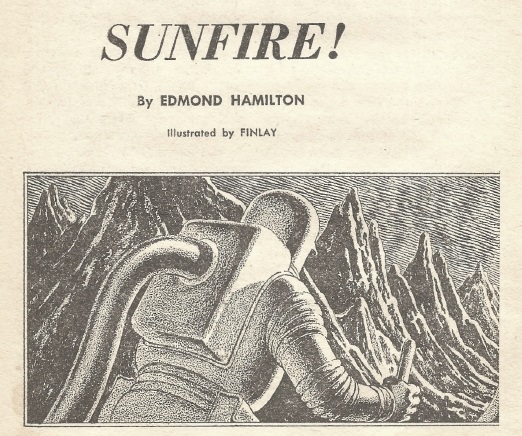
The cover story is Edmond Hamilton’s short story Sunfire!, which continues Hamilton’s transition from Space Opera to Mope Opera. Space explorer Kellard has slunk home to Earth and moved back, alone, into his ancestral house, refusing all contacts with his colleagues at Survey, because something happened on Mercury and two of his fellows died, and it’s so terrible he can never talk about it. So Survey comes after him, having not accepted his resignation, and packs him off back to Mercury even though—or maybe because—he still won’t say a word about what happened there.
It’s actually not much of a secret to anyone who has looked at the cover and seen the fiery aliens, looking like crude but imaginative Hallowe’en costumes. They’re telepathic, too, and Kellard got a full dose of how free and playful they are, traversing the universe and frolicking among and in the stars. “No, the ecstacy was one that men would never know except at secondhand through this brief contact! The glorious rush together of the star-children through the vast abysses, drinking up the energy of the radiation about them.” Etc. It makes being human and tramping around on cold and too, too solid planets seem pointless, and Kellard is never going to burden anyone else with this awful knowledge.
Sorry, I don’t buy it, and neither does the head of Survey, who gets Kellard’s point once he too meets the aliens, but doesn’t think just having the planets of the universe is such a bad deal. Like any sensible person he’s ready to tell the world about this rather interesting discovery. Despite the artificiality of its problem, the story is well turned and, with this and Requiem from the April issue, Hamilton is clearly working hard at making the transition to a less obsolete kind of SF than the space opera he is better known for. Splitting the difference between good intentions and lack of plausibility, three stars. If you can believe in Kellard’s reaction, you’ll like it better than I did.

Edward Wellen’s Apocryphal Fragment is a mildly clever vignette (so labelled on the contents page) in which Doubting Thomas encounters a jinni in the Negev. Something this slight should be rated in asteroids rather than stars, but if I must . . . two stars.
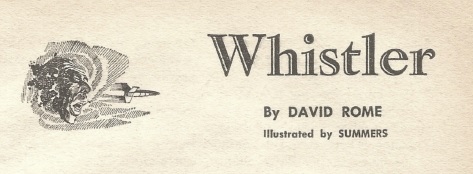
The other short story is Whistler, by David Rome (reputedly a pseudonym for one David Boutland); it’s the first US appearance of an author who has published nine stories in little more than a year in New Worlds and its companions in the UK. Unfortunately it is an insipid though well-meaning message story about the evils of bigotry in the space lanes, almost as short as Wellen’s. One star.
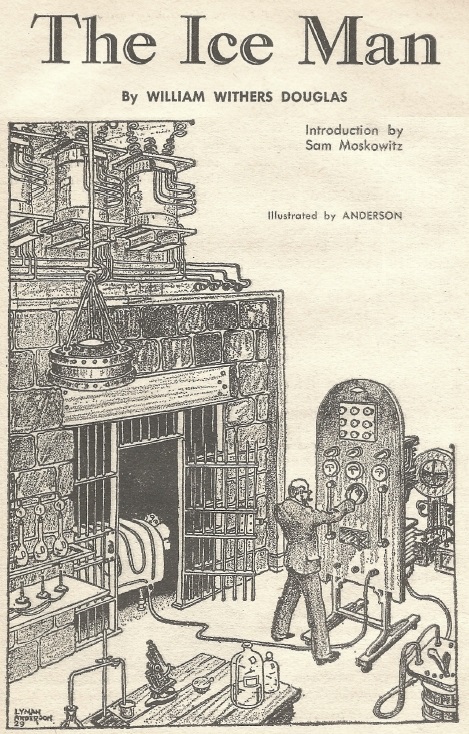
That leaves the Classic Reprint, The Ice Man by William Withers Douglas, from the February 1930 Amazing. The narrator is an ancient Roman citizen brought to the New York of 1928 through a classical version of suspended animation. He expects this account to be transmitted to his countrymen back home, in hopes that someone will rescue him from the insane asylum where he has ended up. It recounts his initial captivity by a rather annoying if not quite mad scientist, and his observations of modern times—fire engines, women’s fashion, etc. etc.—once he has made his escape. It’s reasonably well written, and any two or three pages of it are quite amusing. Unfortunately there are 34. Two stars.
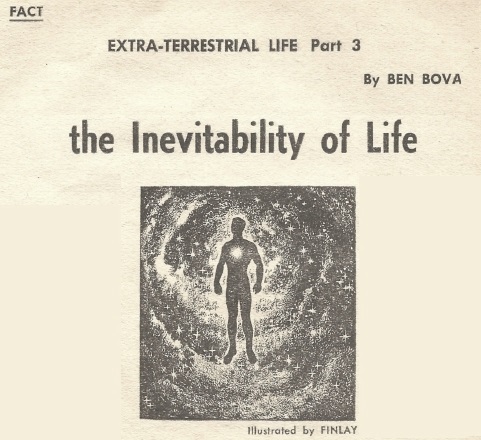
Ben Bova has another installment of his series on extraterrestrial life, The Inevitability of Life, which reviews what’s known (or believed to be known) about the origins of life in chemical evolution and physical processes. There’s a good case that the chemical and physical components of life arise inevitably through natural processes, though Bova is a little hazy on how the deal is closed and organic chemicals become living matter. Nonetheless, three stars for lucid exposition of interesting material, particularly welcome in an issue where there’s not much else of interest.
Benedict Breadfruit abideth.










